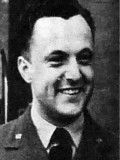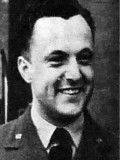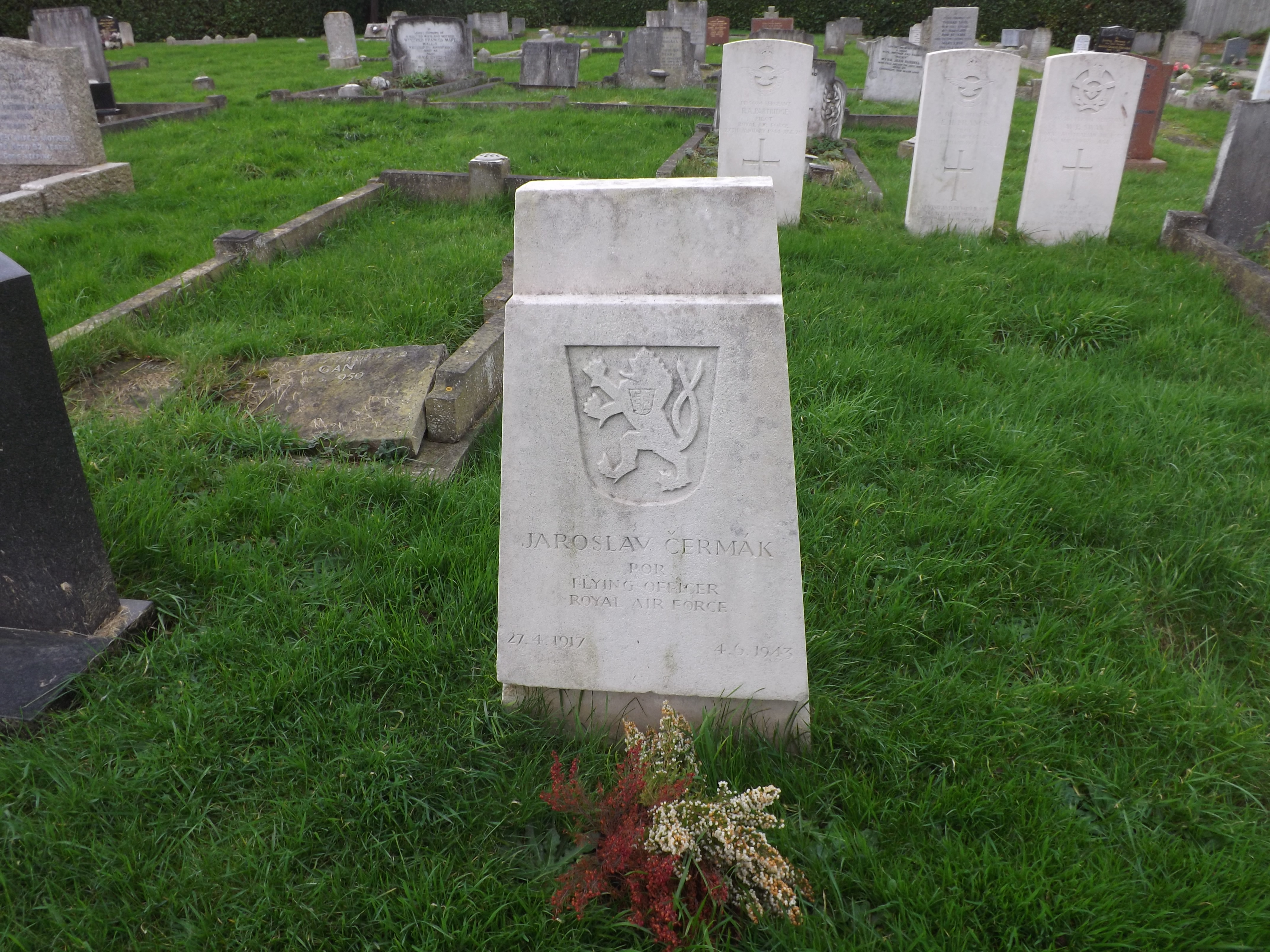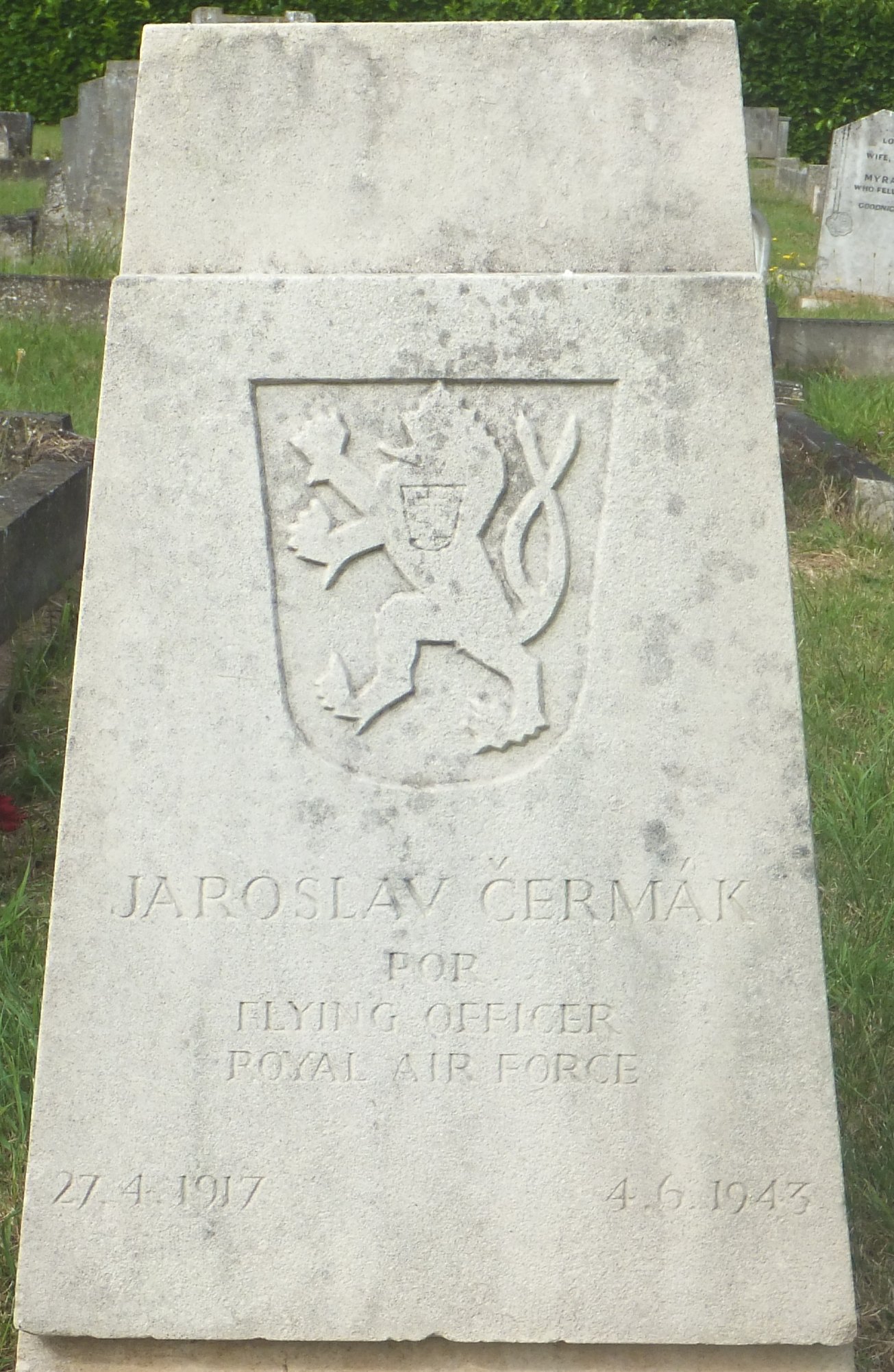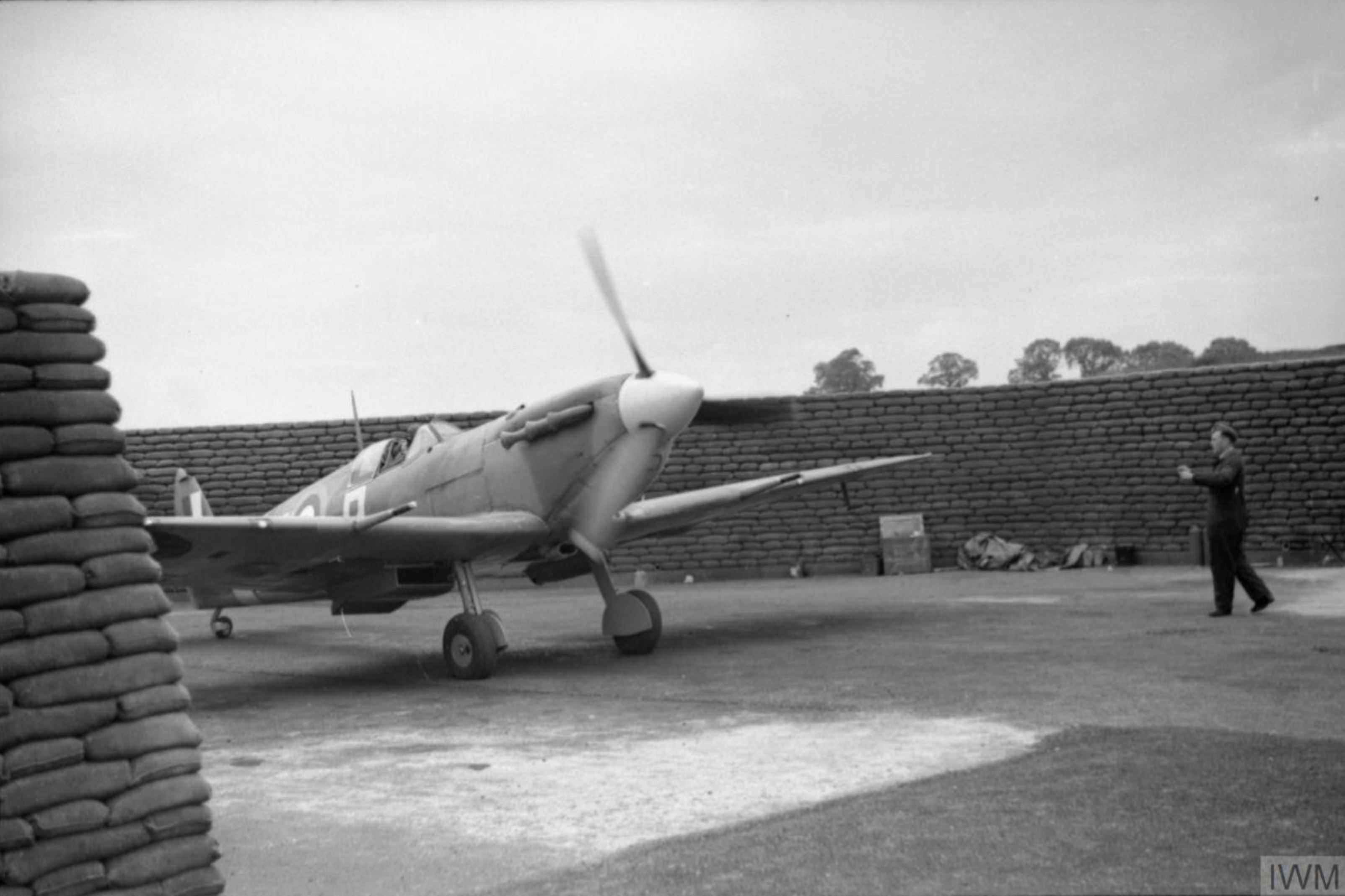In 1938 he graduated from the Czechoslovak Aviation School in Prostějov as a pilot, just a few months before the German Forces annexed the Sudetenland as a result of the Munich Agreement.
When Germany took full control of the entire Czech territory and the Protectorate of Bohemia and Moravia was created, Čermák and few of his colleagues decided to escape to Poland. In August of 1939, just a few days before WW2 started, he successfully managed to cross Polish border.
In Poland, Čermák enlisted in the Czechoslovak Legion, which took a symbolic part in defence of the country during the German invasion. The end of Polish campaign found him in the city of Lvov, in South Eastern Poland, a part of territory being then annexed by the Soviet Union, where he stayed until the fall of France. Today Lvov (renamed Lviv) is the largest city in western Ukraine.
In June 1940 he decided to try and join the Free Czechoslovak pilots serving in the RAF, and set-off on the long and dangerous journey to Britain via a roundabout route through Turkey, Egypt and India, arriving in England around November 1940. On the 26th February 1941, after numerous inquiries into his background and his remarkable story in reaching Britain, he officially joined the Royal Air Force Volunteer Reserve (Service No. 61546), and was assigned as the Intelligence Officer of 310 (Czech) Squadron. However, Čermák's dream was to fly combat missions against the enemy. He achieved this after more than an additional year's worth of flying training and was promoted to Flying Officer on the 12th of April 1943, assigned to 313 (Czech) Squadron based at RAF Churchstanton in Somerset.
On the 4th of June 1943 at 10:05 hours, Čermák and three other pilots took-off from RAF Churchstanton in their Spitfire MkVs on a training flight. Their task was to practice a low-level attack on a train. Near to Bradford-on-Tone, Somerset, they spotted the Plymouth Express which was travelling to Liverpool via Crewe and they commenced their mock attack. During his second approach on the train Čermák, in his Spitfire (serial no. AR512) misjudged his altitude and speed, causing a loss of stability. His left wing tip struck the wooden roof of one of the railway carriages and ripped away some of the wooden planking. This caused his aircraft to flip-over and crash in a field 100 meters from the railway line, killing him instantly. A few WRENS travelling on the train from Plymouth received minor injuries from broken glass and wooden splinters.
Flying Officer Jaroslav Čermák, aged 26 years, was buried with full military honours at Plot 2/5354 of St Mary's Cemetery, Taunton.
NOTE:
Sadly, more dramatic accounts and somewhat inventive tales of the incident can be found elsewhere on the internet, including Wikipedia. These suggest that "at least one carriage had it's roof ripped off" and that "several passengers, mainly WRENs, were killed". One report even suggests that the aircraft bounced off of the train's roof before crashing some 30 miles away near Castle Cary. However, there is no evidence available to substantiate any of these wild stories which, deliberately or not, attempt to taint the memory of a very courageous man.
In 1938 he graduated from the Czechoslovak Aviation School in Prostějov as a pilot, just a few months before the German Forces annexed the Sudetenland as a result of the Munich Agreement.
When Germany took full control of the entire Czech territory and the Protectorate of Bohemia and Moravia was created, Čermák and few of his colleagues decided to escape to Poland. In August of 1939, just a few days before WW2 started, he successfully managed to cross Polish border.
In Poland, Čermák enlisted in the Czechoslovak Legion, which took a symbolic part in defence of the country during the German invasion. The end of Polish campaign found him in the city of Lvov, in South Eastern Poland, a part of territory being then annexed by the Soviet Union, where he stayed until the fall of France. Today Lvov (renamed Lviv) is the largest city in western Ukraine.
In June 1940 he decided to try and join the Free Czechoslovak pilots serving in the RAF, and set-off on the long and dangerous journey to Britain via a roundabout route through Turkey, Egypt and India, arriving in England around November 1940. On the 26th February 1941, after numerous inquiries into his background and his remarkable story in reaching Britain, he officially joined the Royal Air Force Volunteer Reserve (Service No. 61546), and was assigned as the Intelligence Officer of 310 (Czech) Squadron. However, Čermák's dream was to fly combat missions against the enemy. He achieved this after more than an additional year's worth of flying training and was promoted to Flying Officer on the 12th of April 1943, assigned to 313 (Czech) Squadron based at RAF Churchstanton in Somerset.
On the 4th of June 1943 at 10:05 hours, Čermák and three other pilots took-off from RAF Churchstanton in their Spitfire MkVs on a training flight. Their task was to practice a low-level attack on a train. Near to Bradford-on-Tone, Somerset, they spotted the Plymouth Express which was travelling to Liverpool via Crewe and they commenced their mock attack. During his second approach on the train Čermák, in his Spitfire (serial no. AR512) misjudged his altitude and speed, causing a loss of stability. His left wing tip struck the wooden roof of one of the railway carriages and ripped away some of the wooden planking. This caused his aircraft to flip-over and crash in a field 100 meters from the railway line, killing him instantly. A few WRENS travelling on the train from Plymouth received minor injuries from broken glass and wooden splinters.
Flying Officer Jaroslav Čermák, aged 26 years, was buried with full military honours at Plot 2/5354 of St Mary's Cemetery, Taunton.
NOTE:
Sadly, more dramatic accounts and somewhat inventive tales of the incident can be found elsewhere on the internet, including Wikipedia. These suggest that "at least one carriage had it's roof ripped off" and that "several passengers, mainly WRENs, were killed". One report even suggests that the aircraft bounced off of the train's roof before crashing some 30 miles away near Castle Cary. However, there is no evidence available to substantiate any of these wild stories which, deliberately or not, attempt to taint the memory of a very courageous man.
Inscription
Jaroslav Čermák. Por. Flying Officer Royal Air Force. 27.4.1917 - 4.6.1943
Sponsored by Ancestry
Advertisement
Explore more
Sponsored by Ancestry
Advertisement
